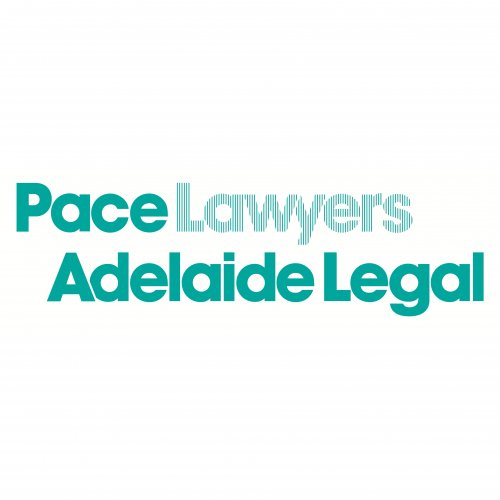Best Creditor Lawyers in Adelaide
Share your needs with us, get contacted by law firms.
Free. Takes 2 min.
List of the best lawyers in Adelaide, Australia
About Creditor Law in Adelaide, Australia
Creditor law in Adelaide, Australia, involves the legal frameworks and procedures that govern the relationship between creditors and debtors. This area of law is crucial for maintaining financial order and ensuring that creditors can collect what is owed to them in a fair and legal manner. In Adelaide, as part of South Australia, creditor law is influenced by both state legislation and federal laws such as the Australian Consumer Law and the National Credit Code. Legal practitioners specializing in this field help navigate complex situations, whether it involves debt collection, negotiating repayment plans, or insolvency issues.
Why You May Need a Lawyer
Legal assistance might be necessary in several situations involving creditor-related matters. Common scenarios include difficulties with debt recovery, disputes over unpaid invoices, navigating bankruptcy proceedings, and dealing with unfair creditor practices. Lawyers specialized in creditor law can help both individuals and businesses by providing guidance, representation, and dealing with creditors in an effective manner. They can also aid in negotiating terms, handling litigation, and ensuring compliance with relevant laws.
Local Laws Overview
In Adelaide, creditor law is governed by a combination of state and federal statutes. Key aspects include the Fair Trading Act 1987 (SA), which protects consumers and businesses against improper conduct in the marketplace, and the Bankruptcy Act 1966, which outlines processes related to insolvency. Additionally, the Australian Competition and Consumer Commission (ACCC) plays a role in enforcing laws against deceptive practices affecting creditors and debtors. Local laws ensure that debt collection practices are fair and transparent, providing safeguards for all parties involved.
Frequently Asked Questions
What is the role of a creditor lawyer?
A creditor lawyer assists with legal advice and representation in matters involving debt recovery, negotiation with debtors, and ensuring compliance with creditor protection laws.
What are my rights as a creditor in Adelaide?
As a creditor, you have the right to claim what's owed to you through legal channels. You can take action for debt recovery and expect adherence to fair proceedings under the local laws.
How does insolvency affect creditors?
Insolvency can severely impact creditors, as it may affect their ability to recover debts. Legal advice can help navigate insolvency claims and potential recovery plans.
What steps can I take if a debtor refuses to pay?
You can issue a written demand for payment or seek legal advice to explore options like mediation, court action, or engaging a debt collection agency.
Are there any regulations limiting how a creditor can contact a debtor?
Yes, there are strict guidelines under the Australian Consumer Law about how creditors can engage with debtors, including rules on communication frequency and timing.
Can interest be charged on overdue debts?
Interest can be charged on overdue debts if it was stipulated in the original contract or agreement, and it is important to ensure such terms comply with the law.
What should I do if a debtor declares bankruptcy?
Seek legal counsel immediately to understand your position and options in recovering debts under the Bankruptcy Act and through available bankruptcy proceedings.
When is litigation advisable in creditor disputes?
Litigation is usually a last resort when amicable negotiations or mediation efforts have failed. A lawyer can evaluate whether litigation is worth pursuing based on potential outcomes.
How do laws in South Australia differ from other regions regarding creditors?
While creditor laws are mostly aligned nationwide under federal law, there might be nuances or specific provisions in the South Australian context that local lawyers can best address.
Can I seek international recovery for debts owed by debtors abroad?
Yes, but it involves complex international law considerations, and it is advisable to seek expertise in cross-border legal enforcement or international arbitration.
Additional Resources
Those seeking legal advice on creditor issues can consult several resources, such as the South Australian Legal Services Commission for guidance and support. The Australian Competition and Consumer Commission (ACCC) provides information on fair trading practices. Local law societies can also provide referrals to specialized legal practitioners in creditor law.
Next Steps
If you find yourself in need of legal assistance involving creditor matters in Adelaide, Australia, consider reaching out to a local law firm specializing in this area. Ensure you gather all pertinent documentation regarding your situation. Initial consultations can help clarify your position and outline potential steps to resolve your legal concerns effectively. Contacting legal aid organizations may also provide additional support and information.
Lawzana helps you find the best lawyers and law firms in Adelaide through a curated and pre-screened list of qualified legal professionals. Our platform offers rankings and detailed profiles of attorneys and law firms, allowing you to compare based on practice areas, including Creditor, experience, and client feedback.
Each profile includes a description of the firm's areas of practice, client reviews, team members and partners, year of establishment, spoken languages, office locations, contact information, social media presence, and any published articles or resources. Most firms on our platform speak English and are experienced in both local and international legal matters.
Get a quote from top-rated law firms in Adelaide, Australia — quickly, securely, and without unnecessary hassle.
Disclaimer:
The information provided on this page is for general informational purposes only and does not constitute legal advice. While we strive to ensure the accuracy and relevance of the content, legal information may change over time, and interpretations of the law can vary. You should always consult with a qualified legal professional for advice specific to your situation.
We disclaim all liability for actions taken or not taken based on the content of this page. If you believe any information is incorrect or outdated, please contact us, and we will review and update it where appropriate.








